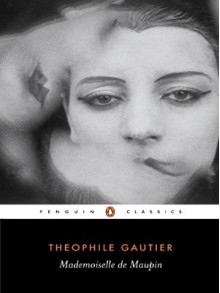
Sex is everywhere, except in sexuality.( R. Barthes).Eroticism seduces sex into a passionate euphoria ; the games of seduction upstages the terminating biological process. Sex is limited; seduction is limitless performing aesthetic gestural plays of sensual rituals challenging moralistic foundations. Seduction is always more singular and sublime than sex, and it commands the higher price (Baudrillard). Liberation of passion from its didactic shackles, love being embraced with a poetic mirage; the beauty of love in its immoralist exhibit- a virtuous revolt of unattainable love being the ultimate allure. Not that this game is perverse. What is perverse is what perverts the order of the terms; but here there are no longer any terms to pervert, only signs to seduce. (Baudrillard;Seduction). Theophile Gautier’s elaboration of his self-coined phrase,"Art for art’s sake", is a celebration of identifying the splendor of love in it pure form; a bohemian expression of devoted possession that nurture the radicalism in a poet’s despair. Poetry is aesthetically alluring; prose is insipid, clean as water. Dream of love, weep in its agony, clinch its vices and contemplate in its ruins for nothing corrupts like not being loved.Madelaine de Maupin was far from being a virginal bashful maiden. In a self-revolt to the ritualistic regulations of finding an appropriate suitor, she is determined to find more about men and their world by disguising as a man. Her tomboyish persona and an acute swordsmanship help Theodore(Mlle.Maupin) to explore the chivalrous masquerade of men. The impeccable cover up bequeaths Theodore with his first tryst with potential love as Rosette succumbs to his coquettish charm and passionately falls in love with Theodore. Theo, himself (herself) is romantically inclined to Rosette far enough as to take care not to hurt Rosette’s feelings when the love becomes distant. The love exhibited between the two (also later with D’Albert) is truly in its aesthetic form devoid of any sexual encounters. Chastity was the main element among the three characters when they define their respected love. When Maupin (Theodore) can no longer control the events with Rosette in their bedroom, flees leaving Rosette heartbroken with an unfulfilled love. As the novel progresses into a mesh of passions flying all over the corresponding letters, Theodore finds himself being the object of affection of D’Albert. D’Albert is stunned by the fact that his “true” love is man and desires Theodore to be a woman as he cannot fathom his quandary of deciding the legitimacy of his love. How can he love Theodore so fervently and not Rosette who has been his mistress for months? Maupin does not reveal the true identity of Theodore in favor of genuine love not being tarnished by debauchery.Gautier was free thinker who looked up to Victor Hugo and Charles Fourier among other iconoclasts emphasizing that justifying an artistic pursuit unvalued the core of its aesthetics. He flirts with the aspects of bisexuality and gender restriction in this proposal of love delineated through letters written by the characters is par above gender restriction, societal prejudices; purely love in its crude form. Gautier did not corrupt the seductive atmosphere of the plot with sexual tryst or any sort of its elaboration and feted the inspiration of wild pleasures that go beyond physical normalization. The offset of bisexuality in Maupin’s life with her unbridled passion for Rosette was marred with the thought of revealing the uncouth reality. I wonder if Rosette would indulge in Maupin’s sensuality if she knew who the real identity.Although my skepticism take a plunge in the concluding chapter when Rosette and Theodore indulge in their last of wild passion with the maid discovering pearls which Maupin was wearing while clearing out the bed clothes. Or for that matter, D’Albert who insisted on calling Theodore by his theatre name- Rosalind in a bid to save himself from accepting the idea of falling in love with a man. Love captures all, is not what people preach and yet we as a society fail to accept the very aspect of enlightened love by negotiating unwanted gender bias laws. We live in a free world with shackled outlook. Gautier based his heroine (Maupin) in a world where lovers were clandestine in their actions and marriages were more of a formal engagement. Similar to Victor Margueritte’s sketch ofMonique Lerbier; Maupin gives me goose bumps. The very idea of a woman revolting against the societal norm is still very appeasing to me. In a culture where the sacredness of arranged marriages is still preserved and casteism many a times becomes a debating factor in conjugal associations, sexually liberation is veiled under sanctimonious hypocrisy; it’s an elation to interpret such an ardent work of sheer romanticism.Is love virtuous? Fair enough, I believe so. When human emotions integrate within the trance of love, its illusionary beauty penetrates deeper into moralizing vortex of genuine emotions. The heart upstages the eyes; I reckon that must be the sole reason of Theodore vanishing from the lives of Rosette and D’Albert desiring that they share the passion of their love. The life of a lover or a poet may seem rousing to those whose naivety to the melancholic fatigue is reminiscent to a child on a realism threshold. Even though the society has lost of its right to be artless and bashful with its marriage to civilization, there are times when a poem cannot be read solely as a poem for there is a possibility of its artistic consciousness being ruined by the colorless prose of sincere love.

 Log in with Facebook
Log in with Facebook 






